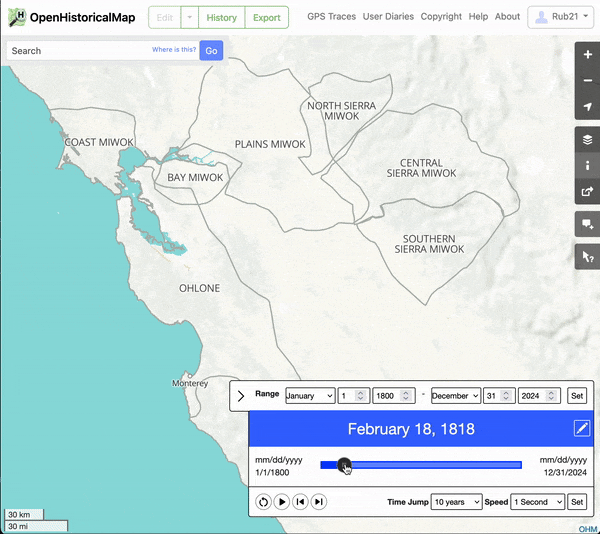OpenHistoricalMap, Bridging Time with Tech
Powering History with Technology, The Integration and Growth of OpenHistoricalMap
Ref OSM-as-a-service- OpenStreetMap
- Docker
- kubernetes
- History

OpenHistoricalMap is a project based on historical data, and currently, its user base is increasing. OpenHistoricalMap relies on OSM (OpenStreetMap) software and utilizes many of its components, including the API, Nominatim, tiler, Tasking Manager, Overpass API, OSMCha, Taginfo, planet dump, and minute and changeset replication.
Here's a brief overview of these components:
- Website: Allows users and developers to interact with the platform's data, facilitating the creation, modification, and retrieval of map information.
- Nominatim: The search engine for OSM, used for geocoding (converting place names to geographic coordinates) and reverse geocoding.
- Tiler: Generates map tiles, small square images used to efficiently display a map in web browsers or map viewers.
- Tasking Manager: Coordinates mapping efforts, particularly beneficial for collaborative projects and organized mapping activities.
- Overpass-turbo: Enables querying specific data from the OSM database, allowing for detailed information retrieval about map features.
- OSMCha (OpenStreetMap Changeset Analyzer): Monitors and validates map data changes, ensuring data quality and integrity.
- Taginfo: Provides information about the tags used in OSM, aiding in understanding how different features are categorized and described.
- Planet Dump: Offers a complete export of all data in the OSM database, facilitating comprehensive access to map data.
- Minute and Changeset Replication: Allows incremental updates of map data, enabling users to download only the recent changes instead of the entire dataset.
Integrating all these components can be very challenging. Currently, the GeoCompass team, along with Development Seed, are the primary maintainers of the software and architecture.
As for the technical side, we've been working extensively with osm-seed, a collection of Dockerfiles for running a containerized version of OpenStreetMap. This approach gives us the flexibility to run various software using either Docker Compose or an orchestration application like Kubernetes. For OpenHistoricalMap, we use Kubernetes to seamlessly integrate all these components.
If you're interested in deploying your own instance of an OpenStreetMap server or contributing to the mapping ecosystem, exploring how OSM Seed can facilitate these activities would be a good start.
